Dinner Fork Deformity MEDizzy

Child With Dinner Fork Deformity Annals of Emergency Medicine
Deformity of the wrist, sometimes called a "dinner fork deformity," which causes it to look crooked and bent. To diagnose a broken wrist, your doctor will give you a thorough physical exam .

Figure 1 from The Dinner Fork Deformity Semantic Scholar
INTRODUCTION :- ⇒ Dinner fork deformity is due to colle's fracture in which the fracture of the distal radius in forearm with dorsal (posterior) and radial displacmentof the wristand hand. ⇒ Dinner fork also called "bayonet" deformity due to the shape of the forearm. CAUSE:- ⇒ Wrist fracture. ⇒ Over stretched hand (common in child)
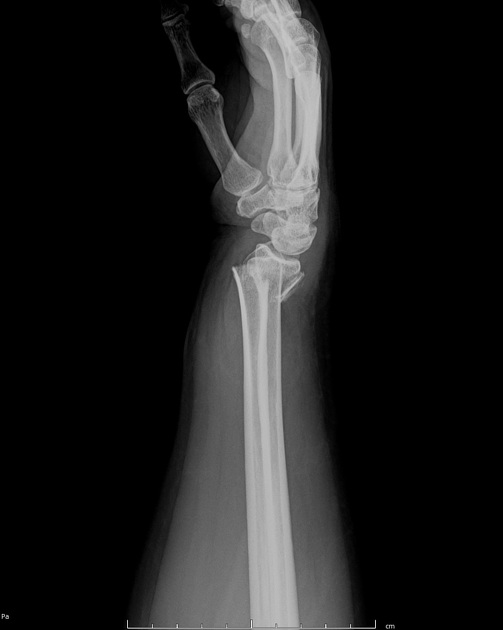
Dinner fork deformity (wrist) pacs
Transform Your Marks Into Grade-A Achievements With Osmosis's Unique Study Tools. Osmosis helps train your brain with resources designed to lock in key info for good.

Food related medical terms Dinner fork deformity
The structures distal to the fracture (wrist and hand) are displaced posteriorly. It produces what is known as the 'dinner fork deformity'. Fractures of the radial head - This is characteristically due to falling on an outstretched hand. The radial head is forced into the capitulum of humerus, causing it to fracture.
Classical Dinner Fork Deformity of Colles' Fracture of Wrist
On examination, the patient's right wrist is swollen with marked "dinner fork" deformity. There is tenderness over the distal radius and decreased sensation in the distribution of the median nerve. Other Presentations. Fractures of the distal radius can sometimes be associated with open wounds. Irrespective of age, an open wound usually.

Colles' fracture of the wrist, illustration. This fracture is sometimes referred to as a 'dinner
Displaced fractures usually present with a "dinner fork" deformity and require closed reduction and possible surgical fixation. Successfully reduced fractures can be treated nonsurgically with immobilization and radiographic monitoring.
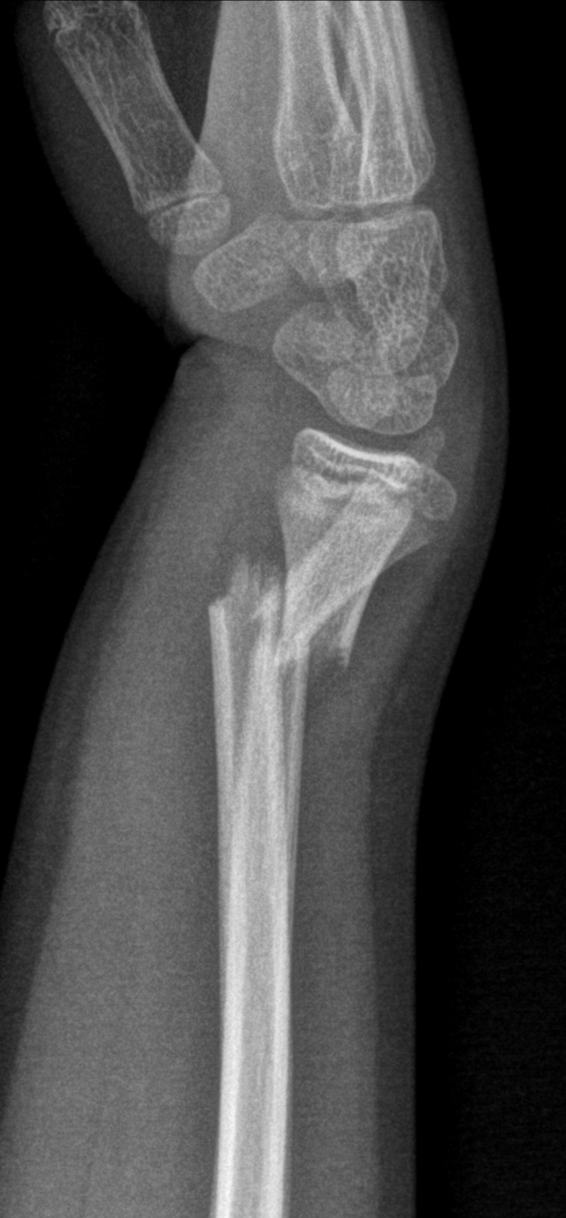
Colles fracture dinner fork deformity Image
In the distal radius, the term 'Colles' fracture' is still used to describe a fracture in which there is an obvious and typical clinical deformity (commonly referred to as a 'dinner fork deformity') of dorsal translation, dorsal angulation, dorsal comminution (fragmentation) and shortening.

All About Bones
A dinner fork deformity, also known as a bayonet deformity, occurs as the result of a malunited distal radial fracture, usually a Colles fracture. The distal fragment is dorsally angulated, displaced and often also impacted. The term is descriptive, as the lateral view of the wrist is similar to the shape of a fork, seen from the side, tines down.
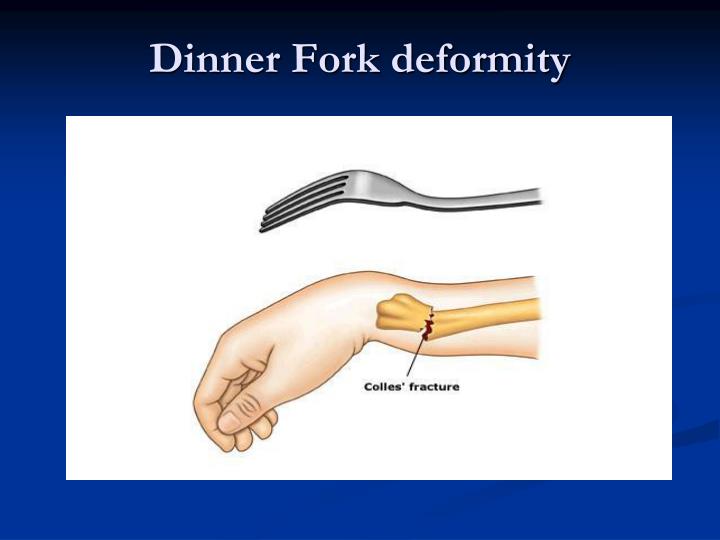
PPT Orthopaedics Tutorial PowerPoint Presentation ID3924770
Colles' fracture Due to the dorsal displacement of the distal fragment, Colles' type fractures are often said to have a "dinner fork" appearance. Graphic 78559 Version 2.0
Dummies Guide to Colles' fracture Exercise After Cast Removal
Find the deal you deserve on eBay. Discover discounts from sellers across the globe. No matter what you love, you'll find it here. Search A-fork and more.
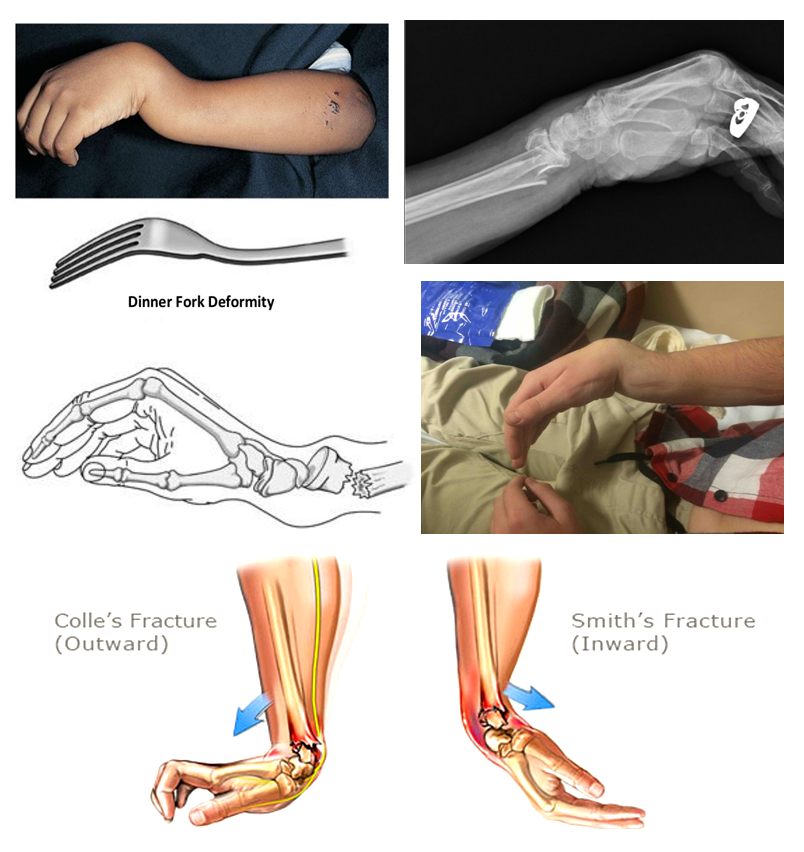
EMNote
The deformity that results from the Colles' fracture is described as a "dinner fork" deformity because of depression at the fracture site, dorsal angulation, and dorsal displacement of the distal radius. History-taking should focus on the mechanism of injury and amount of energy involved.

DINNER FORK DEFORMITY Mobile Physiotherapy Clinic Ahmedabad Gujarat
The clinical presentation of Colles fracture is frequently described as a dinner fork deformity - distal fracture of the radius causes posterior displacement of the distal fragment, causing the forearm to be angled posteriorly just proximal to the wrist.
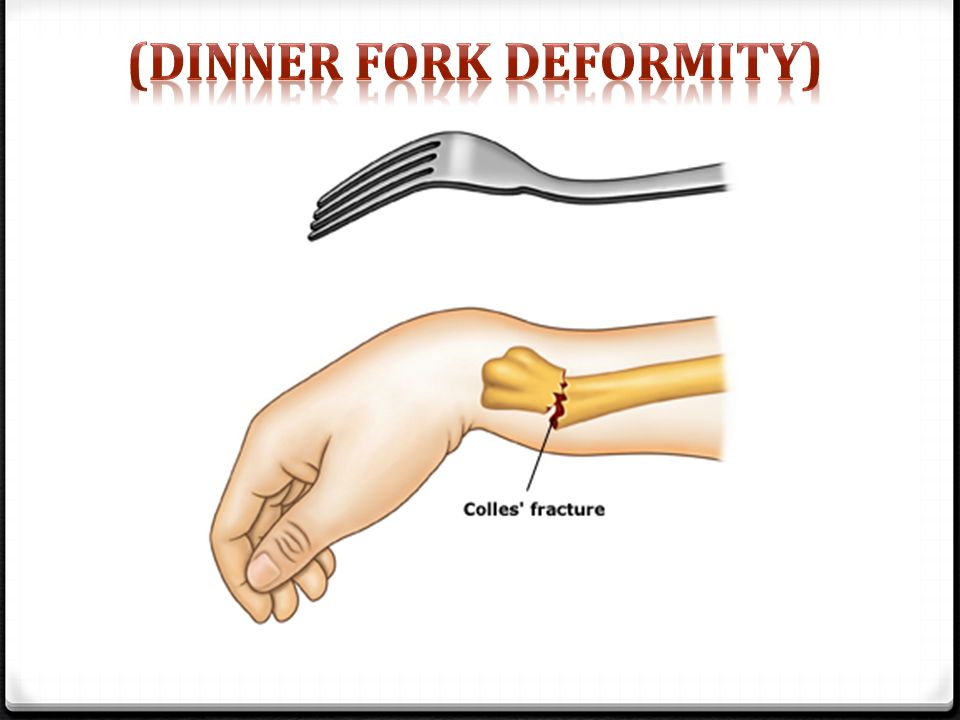
Dinner fork deformity causes , symptoms & treatment
A dinner fork deformity also identifies as a bayonet deformity, happens as the result of a malunited distal radial fracture, generally a Colles fracture. The distal fragment is dorsally angulated, displaced, and often also impacted. What are the Causes of Dinner fork deformity? Wrist fracture mainly after colle's fracture

JMSR
Objectives: Identify the etiology and epidemiology of Colles fractures. Outline the appropriate history, physical, and evaluation of a patient with a Colles fracture. Review the treatment and management options available for Colles fractures.
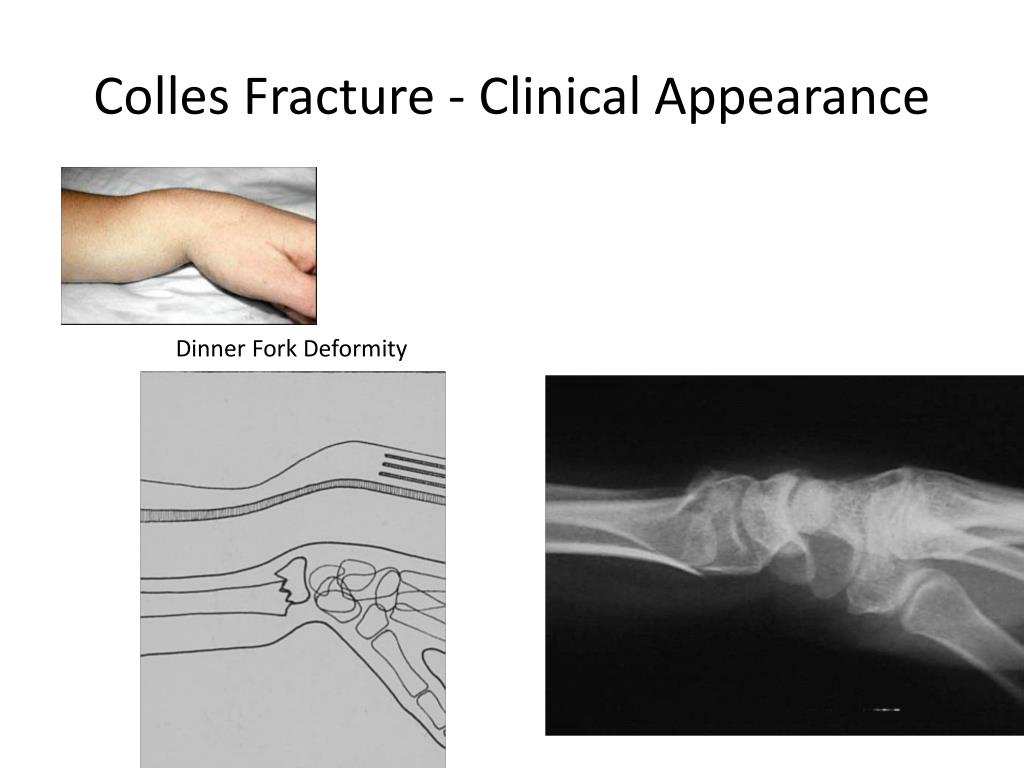
PPT Distal Radius Fractures PowerPoint Presentation, free download ID4048273
Dinner fork deformity is a term used to describe the appearance of the wrist on a lateral radiograph in cases of distal radial fracture with associated dorsal displacement and impaction, as seen in cases of Colles fracture. The mechanism of injury is usually a fall on an outstretched hand.

Child With Dinner Fork Deformity Annals of Emergency Medicine
Displaced fractures usually present with a 'dinner fork' deformity and require closed reduction and possible surgical fixation. Successfully reduced fractures can be treated non-surgically with immobilisation and radiographic monitoring.